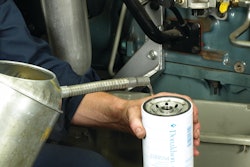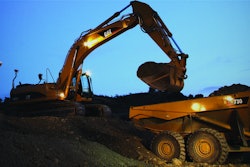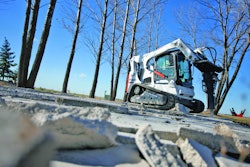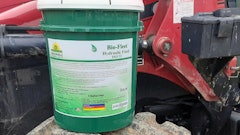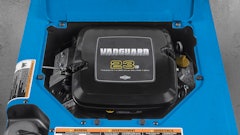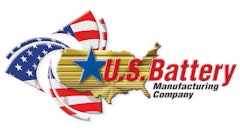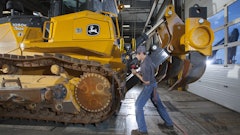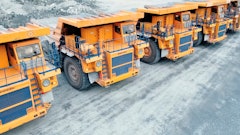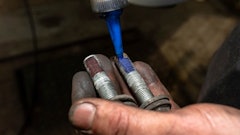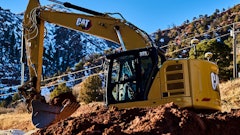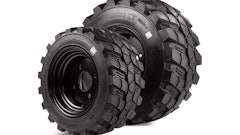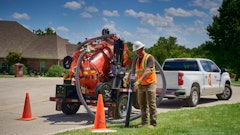Fluids rarely arrive at your shop or jobsites contaminant free.
"When suppliers make oil, fuel and hydraulic fluid, it comes out clean," says Paul Bandoly, manager of technical services/customer training, WIX Filters. But then they put that pristine fluid into a container and ship it to your facility or jobsite, where it can change hands, and containers, numerous times - from a tank farm to a truck to dispensing equipment and finally to your equipment tank. "By the time it goes into your equipment, there has been a lot of opportunity for contamination."
Fluids such as ultra-low sulfur diesel (ULSD) fuel also have a tendency to attract more water. "If you don't have proper housekeeping, you will see water in fuel much more quickly," Bandoly indicates. "Hydraulic fluids and oils are the same way."
Such contaminants can wreak havoc on equipment fluid systems. "Systems are less tolerant today," says Bandoly. "The sophistication of the equipment requires more caution. Any container of fluid should be filtered before you put it into the system."
Filtering fluids prior to fills can help to minimize contamination risks and allow fluid filters to be more effective. Bandoly cites a contractor who was working along the coast in Abu Dhabi. "They had the worst possible conditions, yet he was getting 30,000+ hours per engine on all of his equipment," he asserts.
The contractor made it a practice to use mobile filtration carts on all of the fluids going into his equipment, and air desiccant breathers on drums to capture moisture in the humid climate. "Those practices contributed to the life of his machines. It's also about using routine fluid analysis and understanding what it's telling you."
In addition, the contractor maintained a strict filter and fluid replacement cycle and adhered to manufacturer recommendations regarding filter type. "They pulled one engine down at 28,000 hours and the bearings looked clean as a whistle," says Bandoly. "So who's getting greater value out of their equipment - the guy who bought the cheaper filter or the guy who's getting 30,000+ hours on that equipment?"
The fleet made sure the selection and service of everything - from engine bearings to oil - had been proven and then managed. "Filtration, precision service and fluid analysis were key tools in the whole approach," says Bandoly.
"The filters used," he adds, "were an integral part of doing it right."
For additional insight on how to keep your fluid systems and filters functioning properly, take the free e-learning courses found at wixconnect.com.




